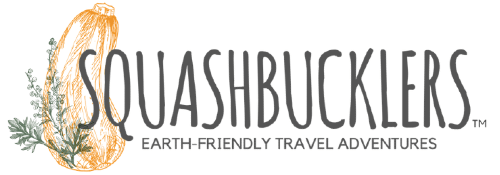Plastic Practice
When I was working at a natural food co-op last year, I overheard two women talking to each other in line. One looked at the plastic bags we had and mentioned she heard they were talking about removing the plastic bags at Target, a popular department store. With exasperation in her voice, she expressed to the other woman how little sense that made.
“What is someone supposed to do if all they buy is a toothbrush?!”
…
As crazy as it sounds (and yes, you’re right, it sounds crazy), this short interaction illustrates the pervasive nature of plastic in our culture. The man-made, clearly un-natural material, that’s only been mass-produced since around World War II, is now a part of us [1]. Much like our smartphones and GPS, we seemingly can’t live without it. It coats our store receipts, it holds our favorite beverage, it’s in our face wash, it’s in our clothes, and it’s now in our food.
What’s the Issue?
One of the issues with plastic is that we’ve produced a lot of it. Like, a lot. Since the mid 20th century, we’ve produced 18.2 trillion pounds of plastic [2]. If that number is hard to picture, try thinking about it like this: 18.2 trillion pounds is equal to 822,000 Eiffel Towers. The problem with this mass production is that, unlike food and natural fibers that are also manufactured on a massive scale, plastic doesn’t degrade back into an original natural substance. Instead, when plastic breaks down, it becomes microscopic and, in effect, extra dangerous. Microplastics are now filling the ocean and the stomachs of sea creatures.
What can I do?
*First, it’s important to note that the ability to be able to change our daily habits to reduce plastic use, prevent food waste, or spend money on better quality food, is a privilege. In many situations, we are limited by our access to alternatives for many reasons.
This information is not intended to cause guilt or ask you to overlook immediate needs. The goal is always to do what we can, with what we have.
Assess your own plastic use
Where do you create the most waste? Determine your biggest source of plastic consumption. Do you often buy food wrapped in plastic packaging? Do you eat out a lot and go through disposable utensils and containers? Do you get a to-go coffee every day? Do you always bag your groceries in new plastic bags? Do you eat fish from sources without clear catching procedures?
Opening your eyes and becoming aware of your own waste is the first step to change.
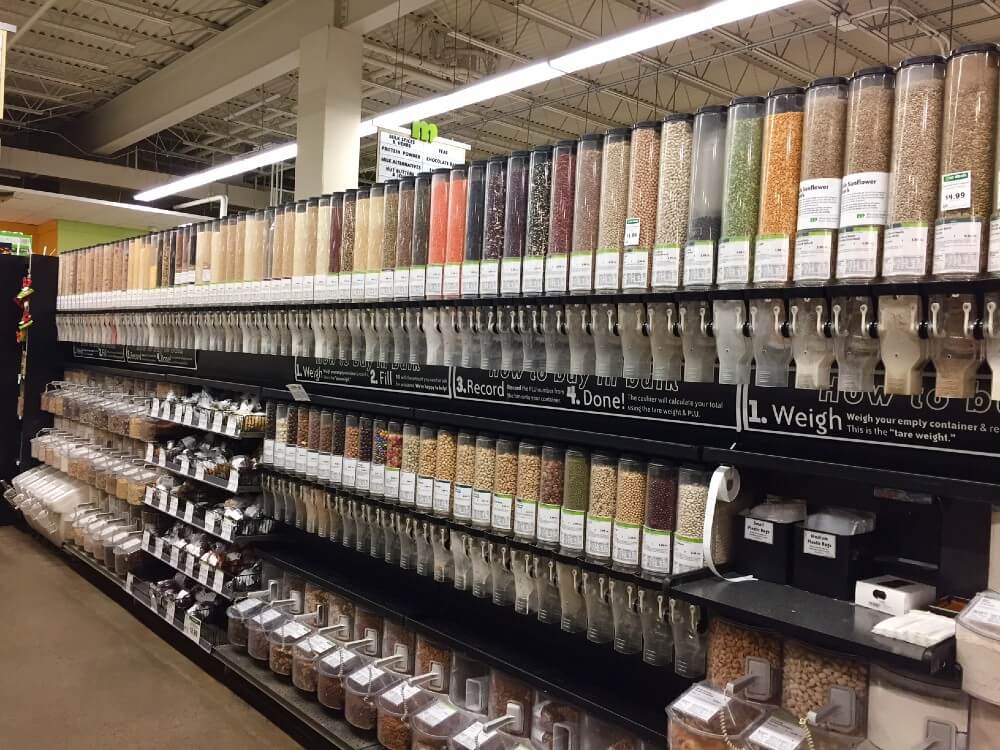
Start to look for alternatives
Many grocery stores have bulk buying options – meaning you can bring your own container and only purchase the amount you need. These are particularly popular in natural foods co-ops. To find one near you, try looking at the National Co-op Grocers Assocation map of co-ops in America. Or attend your local farmers’ market and buy directly from the farmer with your own bags. No more produce wrapped in unnecessary plastic! Use LocalHarvest.com to find markets and farmers around you.

Use your own containers
Bring your own containers to restaurants, or at the very least, determine whether they offer recyclable or compostable takeout containers. Opt to only purchase from environmentally-responsible establishments. Let them know why you are or are not purchasing from them.
Use your own utensils and napkins
If you order takeout, either use your own from home, or purchase a set to have on hand at all times (I keep mine in my purse and they’ve saved me many times!)
Keep a reusable bag with you
There are so many options out there. Find one you like and use it for everything.
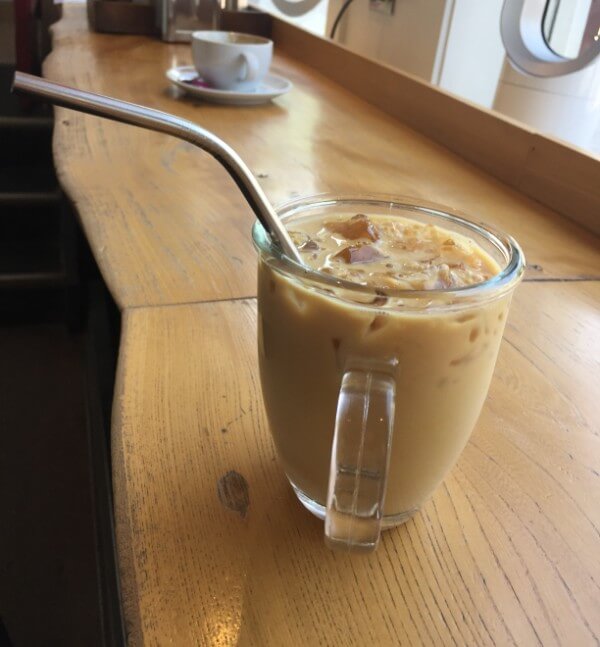
Use your own resuable mug
Are you sensing a theme here? Bring your own mug when getting coffee, or ask for it to be put in a ceramic mug if you’ll be sticking around. You can often get a discount for bringing your own, and one reusable mug can prevent so many disposable coffee cups from the landfill.
My favorites are the Stojo, which collapses into a size fit for a pocket or purse, and EcoCup, which is made of bamboo and comes in many beautiful designs.
However, anything works as long as it’s actually used!
Think before you throw
If you don’t know what to do with something, instead of immediately going to throw it in the trash, think about whether it could be reused, donated, or at the very least recycled. The internet is your friend for all of these. A simple search, “What to do with…”, “How to recycle….” will go so far.
Refrain from buying clothing made of plastic
When they’re washed, the plastic fibers in polyester and nylon break down into tiny microscopic microplastics that are becoming a horrible ocean pollutant. They show up in the fish we eat and accumulate in our bodies as well. In addition to wearing clothing with natural fibers, consider washing your plastic clothing less often and inside of a Guppy Bag. The Guppy Friend bag has been proven to prevent the breakdown of clothing fibers by 80%, effectively increasing the lifespan of the clothing item, as well as collecting the microfibers that do breakdown so they can be safely disposed of.
Consider eating less fish
And/or research the brands you buy.
It’s easy to focus on the harmful effects of single-use plastic, becasue it’s visible in our everday lives. But what’s little known, is that fishing nets and related equipment actually make up the majority of the plastic in the ocean, and it is responsible for so much death of sea creatures. What are their fishing methods? Are they transparent about these issues?
Learn more at Sea Shepherd, The Ocean Cleanup Project
Good Companies to Support
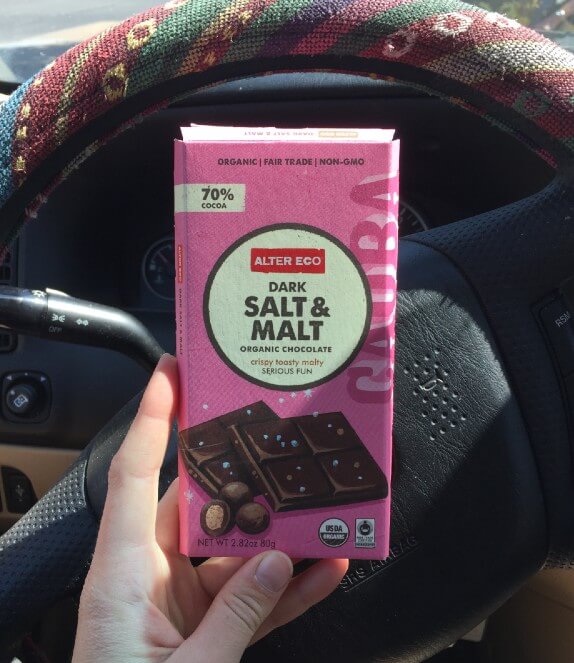
Hippie Haven Shop
Are you in the market for some zero-waste gear? Hippie Haven has everything you need and more. Shampoo bars, biodegradable bandages, metal razors, reusable food wraps, toothpaste powder….the list goes on. There are many zero waste online stores, but Hippie Haven goes beyond reducing waste to promoting social justice in their community and elsewhere. Head to their websiteto learn how to make your own products, eco-friendly lifestyle tips and their Hippie Haven Podcast comprised of “honest conversations about living harmoniously with ourselves, others & the planet.” Plus, it’s women-run and 70% of their products are from female-owned small businesses!
Alter Eco
I cannot say enough about this company, but I’ll try to contain my enthusiasm just enough so you don’t get scared away. Besides only using clean ingredients that help regenerate the earth, and partnering with small-scale farmer-owned co-ops, Alter Eco has been a leader in developing the first compostable “plastic” pouches and candy wrappers made from non-GMO renewable sources. They’re called Gone4Good.
Find their chocolate and grains at your local co-op.
Non-Profits Leading Change
Greenpeace
One of the biggest names in the environmental justice movement, Greenpeace continuously fights for the reduction of plastic through campaigns pressuring big corporations to take responsibility for their waste. Check out their page for more ways to take action and to stay up-to-date on plastic news and victories around the world.
The Ocean Cleanup
Ocean plastic is especially harmful because that’s where it often comes into direct contact with animals. Whether animals eat the microplastics or become entangled in bags or fishing nets, plastic in the ocean threatens the survival of many species. The Ocean Cleanup is a non-profit dedicated to helping clean up these large patches of plastic floating in oceans around the world. Using an effective passive collection system, they are both cleaning up the ocean plastic and using interceptors near rivers to prevent its entering in the first place. After the plastic is collected, it is recycled and made into long-lasting products.
Sea Shepherds
“Sea Shepherd Global is an anti-poaching organization dedicated to operating within the boundaries of international law, to uphold international conservation law, with a commitment to absolute non-violent tactics.” – Paul Watson
Although international fishing laws exist to protect marine life, they are often difficult to enforce due to blurry lines and lack of funds. However, illegal fishing operations which leave debris like ropes, nets, hook and buoys are directly related to ocean plastic pollution. Sea Shepherd Global acts to confront illegal fishing activities in cooperation with law enforcement agencies.
Products to help get started
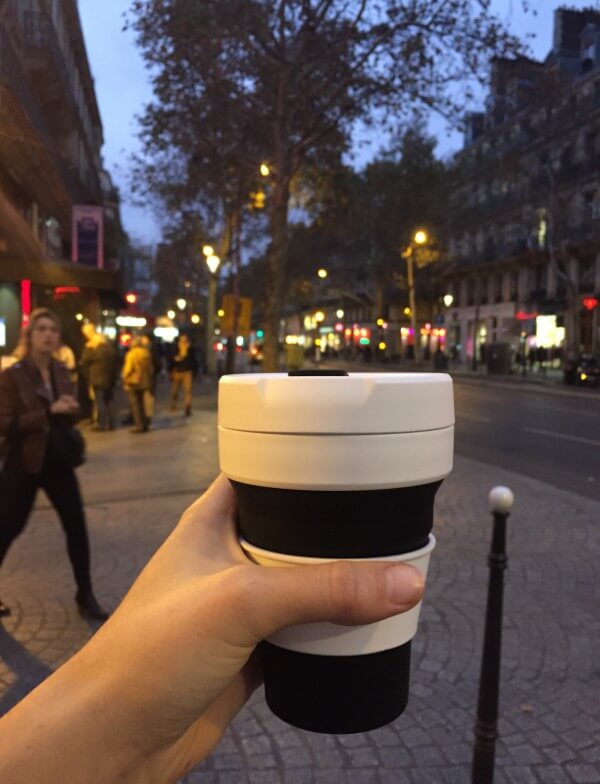
Stojo
If you don’t have a resuable mug, stop what you are doing and pick up a Stojo. The biggest issue with most resuable mugs is that they’re only convenient when you’re actually using it. The rest of the time, they take up space and tbh I don’t always want to carry a big bag around with me. The Stojo was created to solve this problem. When not in use, it collapses to about two inches and can fit in your pocket or purse. I always have one with me and it has been the carrier for many a lattes and even some delicious Indian curry.
Organic Cotton Produce Bags
Another go-to item is organic cotton produce bags. Are you in the habit of reaching for the thin plastic bags every time you get a produce item at the grocery store? Retrain yourself by either skipping a bag altogether, or bringing your own reusable bags. Just be careful if you’re not in the mood to talk to people, as you may draw some unintentional attention (speaking from experience)…
To-Go Ware Bamboo Utensils
These will save the day more often than you might think. If you carry a set of utensils around, you’ll never have to reluctanly take the disposable plastic fork/spoon/knife/napkin combo just to take a bite of your street food. It doesn’t matter what kind of utensils as long as they’re used! Some are metal and collapse, some have a spoon on one end and a fork on the other. I keep this bamboo set with me because I prefer eating with full-size silverware.
Accounts to Follow
@WasteFreePlanet
Waste Free Planet is one of the best accounts to follow for starting a low-waste journey. It compiles the best posts and tips into one page, so you’re never short on inspiration.
@MarieBeech
Not only does Marie Beecham share tips for reducing waste, she also incorporates climate and racial justice action steps into her posts.
@ReduceWasteNow
Reduce Waste Now will end up filling your feed with so many unique and little-known waste-reducing tips, you’ll soon be filling your space with regrown veggies, saving your rice water for plant fertilizer and rearranging your whole fridge to properly store your produce.
Sources
[1] Thompson, Richard C et al. “Our plastic age.” Philosophical transactions of the Royal Society of London. Series B, Biological sciences vol. 364,1526 (2009): 1973-6. doi:10.1098/rstb.2009.0054
[2] Rice, Doyle. “Humans Have Produced 18.2 Trillion Pounds of Plastic since the 50s. That’s Equal in Size to 1 Billion Elephants.” USA Today, Gannett Satellite Information Network, 19 July 2017, www.usatoday.com/story/tech/science/2017/07/19/humans-have-produced-18-2-trillion-pounds-plastic-thats-equal-size-1-billion-elephants/491529001/.
